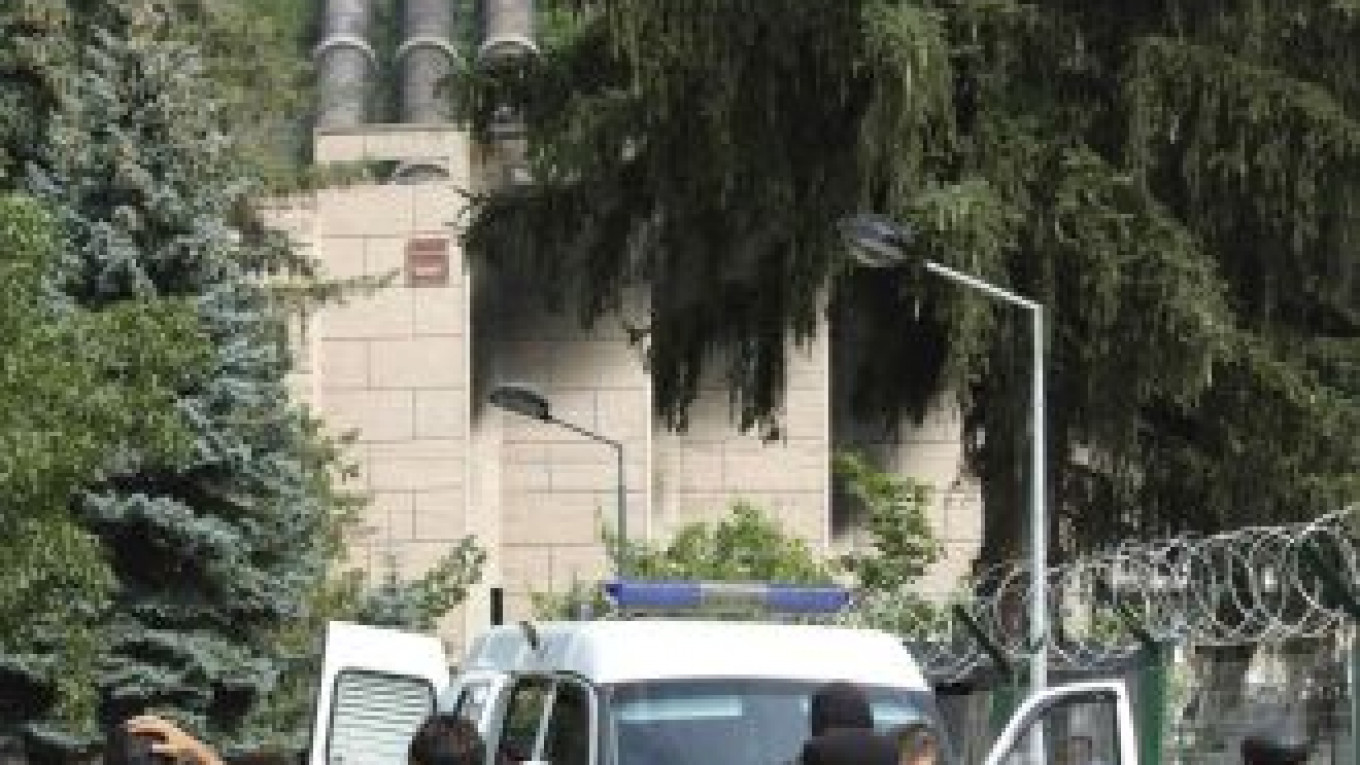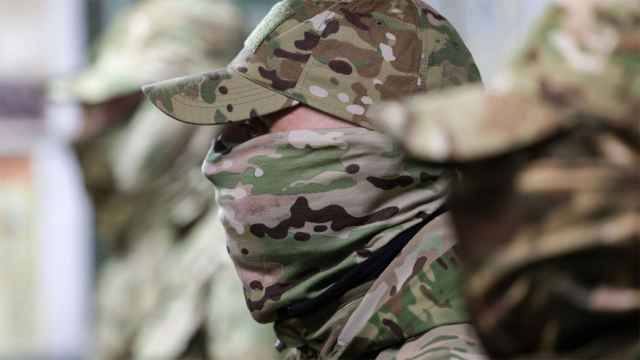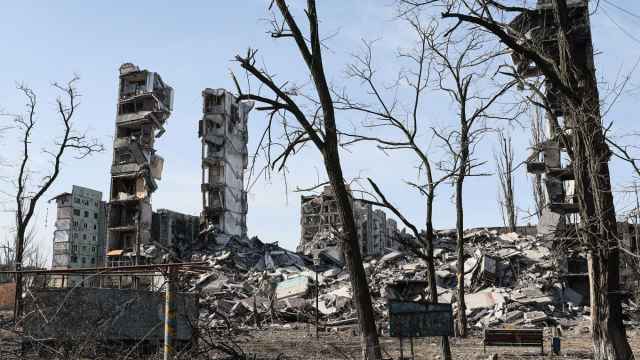A daring terrorist attack on a hydropower station in the southern republic of Kabardino-Balkaria on Wednesday killed two police guards and stirred fears that Islamist militants, emboldened by a first success, might start pursuing other economic targets.
The attack, which saw three to five gunmen break into the 25-megawatt station and plant five bombs on the premises, marks a milestone for Islamist militants, who have threatened to attack economic targets across Russia since at least 2009 but never before succeeded.
The Baksan station, located 24 kilometers northwest of the regional capital, Nalchik, will be closed for six to eight weeks for repairs, Ali Sottayev, director of RusHydro’s unit in Kabardino-Balkaria, said on NTV television.
No power outages resulted from the attack, Vesti state television reported.
The unidentified attackers entered the station at about 4:20 a.m., shooting the two guards to death, the station's owner, state-controlled RusHydro, said in a statement.
The attackers then captured and tortured two employees to find out the location of the generators, which are the core of the station, a RusHydro official told Gazeta.ru. The station has an alarm button, but the employees failed to react quickly enough to activate it, the report said.
The attackers struck one employee with the butts of their guns and slashed the other with a knife, but left them both alive, the official said. No other people were present at the station.
Moving on to the room housing the station's three generators, the assailants planted five bombs, four of which went off at about 5:25 a.m., RusHydro said. The fifth bomb was defused later by the Federal Security Service.
The resulting explosions destroyed two of the generators and sparked a fire that took 3 1/2 hours to put out, the Emergency Situations Ministry said.
But the station has no dam, which means that the neighboring area faced no danger of flooding, Channel One television reported.
A bomb exploded near a police station in the town of Baksan an hour before the attack in what investigators said was likely an attempt to distract the police. The bomb damaged several buildings but caused no injuries, the regional branch of the Investigative Committee said in a statement.
The power station bombs were planted in areas that inflicted the greatest possible damage, possibly indicating that former station employees were among the attackers, Vesti said.
No one has claimed responsibility for the attack, but a law enforcement source told RIA-Novosti that the attackers had been identified. "They are members of a gang led by a well-known rebel," the source said, without elaborating.
Lifenews.ru said the chief suspect was Asker Dzhappuyev, also known as Emir Abdullakh, who declared himself leader of Kabardino-Balkaria's militants after the previous leader, Anzor Astemirov, was shot dead by law enforcement officers in March.
Dzhappuyev has been blamed for a drastic increase in attacks in Kabardino-Balkaria in recent months, the report said.
Twenty-one explosions have occurred in the republic since June 1, and 13 others have been foiled, the news web site Kavkazsky Uzel said Wednesday.
President Dmitry Medvedev, who was on an official visit to Finland on Wednesday, was briefed about the attack by FSB chief Alexander Bortnikov and Kabardino-Balkaria President Arsen Kanokov, whose term expires in September, the Kremlin said in a statement.
Prime Minister Vladimir Putin ordered Deputy Prime Minister Igor Sechin to ensure that the station be rebuilt "in the shortest time." The station was opened in 1936, making it one of Russia's oldest.
RusHydro said security had been stepped up at its all power stations across the country, especially in the North Caucasus.
"An order has been given for a high alert at all sites in the fuel and energy sector to prevent terrorist attacks," Sechin said, Channel One reported.
This is the first officially confirmed terrorist attack on a power station in Russia.
Chechen rebel leader Doku Umarov claimed responsibility for the disaster at the Sayano-Shushenskaya hydropower station in Siberia that killed 75 people last August and threatened to target other strategic sites in the future.
But the authorities have dismissed Umarov's claim, saying the disaster was the result of negligence and human error. No traces of explosives have been reported at Sayano-Shushenskaya.
Umarov also claimed responsibility for the March suicide bombings that killed at least 40 passengers in Moscow's metro.
Andrei Soldatov, an analyst on Agentura.ru who tracks the security services, said law enforcement agencies shared some of the blame for Wednesday's attack because they had not beefed up security at strategic sites.
"The rebels have openly showed their interest in these sites, and it's absolutely unclear why law enforcement agencies have not improved security measures there," Soldatov told The Moscow Times.
In November, Kabardino-Balkaria police foiled a terrorist attack at the Aushigerskaya power station when they discovered four kilograms of explosives and seven grenades in a forest about 200 meters away from the station.
In more recent attacks in Kabardino-Balkaria, an explosion at a racetrack in Nalchik killed one person and wounded at least 20 on May 1.
Several mobile phone towers and radio and television relay stations were blown up in a series of attacks in Kabardino-Balkaria on July 11.
Wednesday's attack coincided with a visit by the Kremlin's envoy to the North Caucasus, Alexander Khloponin, to Kabardino-Balkaria, where he met with Cossacks.
Khloponin called on the Cossacks — who fulfilled many functions of the FSB and riot police in tsarist times — to help fight the local threat of Islamist militants, Interfax reported.






